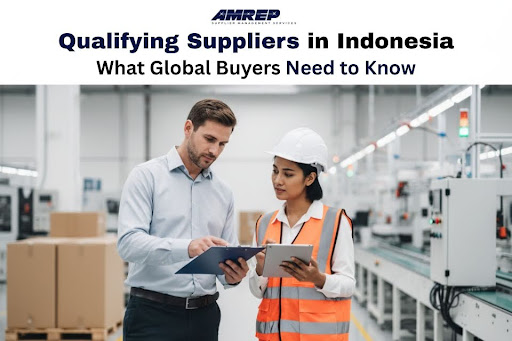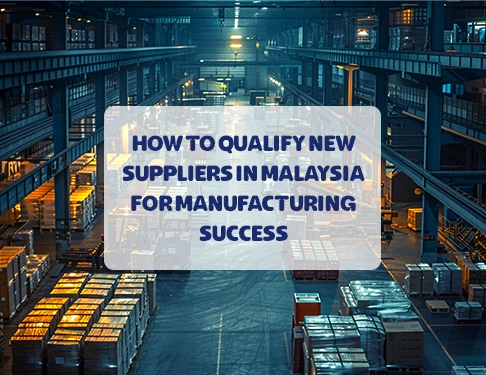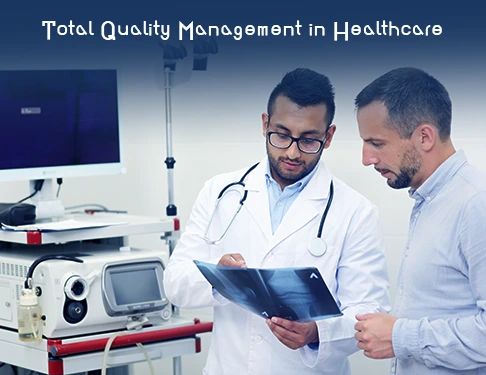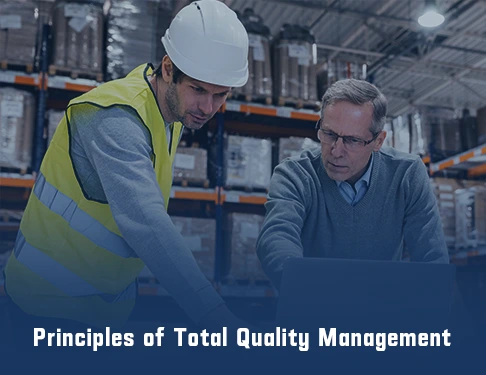Guide to Qualifying New Suppliers in Malaysia for Manufacturing Success
Malaysia is a premier manufacturing hub in Southeast Asia. According to the Malaysian Investment Development Authority (MIDA), “Malaysia, with its extensive trade....
By AMREP | Posted on October 21, 2025
Indonesia is Southeast Asia’s largest economy, a member of the RCEP mega-trade pact, and home to deep supplier bases in food and beverage, agribusiness, garments and footwear, furniture, building materials, electricals, and electronics.
Partnerships with Indonesian suppliers can provide stable production capacity, cost advantages, and valuable supply chain diversification. But without careful planning and oversight, it can quickly turn into problems with compliance, delayed shipments, or quality and workforce issues.
This guide outlines what global buyers need to know in 2025 to find, evaluate, and onboard reliable Indonesian suppliers.

To work with suppliers in Indonesia, it’s vitally important to follow a systematic qualification process to minimise risks and ensure reliability. The following points outline the essential factors to consider when assessing Indonesian suppliers.
Scale + Stability. Indonesia’s population of over 280 million and steady ~5% GDP growth provide a large domestic market alongside strong export capabilities. The country joined the Regional Comprehensive Economic Partnership (RCEP) on January 2, 2023, enhancing tariff preferences and rules of origin across 15 economies, including China, Japan, and South Korea.
Policy Tailwinds. The government continues to streamline licensing through the Online Single Submission (OSS) system and expand standards and compliance programs. These reforms—though stricter—offer clearer rules and greater predictability for serious manufacturers.
Upgrading Industry. New and evolving local content (TKDN) requirements are driving sectors such as electronics and energy toward higher domestic value addition. This is an important context when qualifying suppliers for public procurement or state-linked customers.
Indonesia rewards structured qualification. Expect rigorous paperwork, but when managed proactively, it leads to predictable execution and access to credible factories.
Before assessing capability or price, confirm that your prospective supplier actually exists as a compliant business. Verification of legal identity and licensing is a critical first step in avoiding fraud, supply disruptions, or compliance breaches.
A qualified supplier should be able to promptly furnish its NIB printout, deed of establishment and amendments, tax registration (NPWP), and—if applicable—clear API status aligned with its import or manufacturing role.
Indonesia is rolling out mandatory halal certification in phases. As of October 18, 2024, halal labels are compulsory for many food and beverage products entering, circulating, or traded in Indonesia, with ongoing compliance checks by BPJPH (the halal authority). Smaller businesses and additional product categories have later deadlines, but enforcement for F&B has begun, including inspections of retail shelves. If your category is in scope, your Indonesian supplier—or your own brand if you import—must carry valid halal certification.
Recent guidance for international buyers highlights phased obligations extending into 2026 for certain categories and imported products. Always verify your exact product scope and timeline with BPJPH or an accredited halal body.
Supplier qualification tip: Request the halal certificate, its scope, and expiry, and confirm the certifier is recognized by BPJPH. Align your BOM and label artwork early to avoid relabeling or seizure risk.
For a wide array of goods such as electrical cables, tires, steel, toys, and some electronics, SNI compliance is mandatory before sale. The regulator is BSN, and certification or testing is conducted through accredited bodies (LSPro). Always confirm whether your HS code triggers mandatory SNI and whether it requires pre-shipment certification or post-clearance market surveillance.
Ask your supplier for:
When you need a reference list to start scoping, BSN publishes periodic updates. Many consulting houses compile practical summaries (useful for orientation), but always cross-check against the official BSN database for accuracy.
Depending on the product category, you may also need to verify sector-specific compliance:
Your supplier should know which approvals apply and provide valid evidence of compliance. A short scope of work (SOW) plus HS code usually helps their regulatory team confirm the applicable requirements.
TKDN (Tingkat Komponen Dalam Negeri) quantifies local content in goods and services and is increasingly critical in public procurement, SOE projects, and regulated sectors such as electronics, energy, and telecom.
In 2025, Indonesia issued Minister of Industry Regulation No. 35/2025 simplifying certification and aligning incentives. Presidential Regulation 46/2025 sets procurement guidance emphasizing TKDN thresholds. Electronics and smartphone manufacturers, in particular, face rising local content expectations and stricter enforcement.
Corporate Income Tax (CIT): The general CIT rate remains 22% for FY2025, with reductions for qualifying listed companies and reliefs for SMEs. When analyzing supplier financials, this helps contextualize pricing and margin structures.
VAT (PPN): Indonesia implemented changes in January 2025. Practically, buyers should confirm how suppliers are invoicing VAT. There was a transition to a 12% VAT framework with carve-outs and transitional calculations in January. By February 2025, the 12% rate applied to the standard tax base for luxury categories, while authorities and leading advisors described an effective continuation of 11% for non-luxury supplies through adjusted tax base mechanics. Do not assume; ask your supplier’s finance team how your specific category is treated in 2025 and ensure e-Faktur compliance.
VAT treatment influences cash flow and pricing parity; especially when comparing quotes with and without VAT, and for bonded-zone arrangements. Align early on invoice tax positioning and Incoterms.
Suppliers that handle personal data such as employee information for deliveries, consumer warranty registrations, or device telematics must comply with Indonesia’s Personal Data Protection (PDP) Law No. 27/2022, which took full effect after the transition period ended in October 2024. The law outlines obligations related to legal basis, security measures, breach notifications, cross-border data transfers, and Data Protection Officer requirements based on the scale and risk of data processing, with further clarifications introduced in 2025.
Supplier qualification tip: Include a PDP compliance questionnaire in onboarding:
Indonesia enforces anti-corruption laws through the KPK (Corruption Eradication Commission). While local practice varies, reputable counsel caution that facilitation payments are risky and likely treated as bribery under Indonesian law. Your supplier should have a code of conduct, training, and internal controls; you should reinforce that no “fees” are payable to speed up licensing, customs, or inspections.
Your purchase contracts should embed anti-bribery clauses, audit rights, and termination for breach. Train your sourcing managers on red flags (e.g., vague “handling charges,” third-party “liaisons”).
On-site (or remote) audits remain the gold standard. Focus on:
Remote alternatives: Use structured video audits and digital document rooms when travel is tough but plan a follow-up physical audit before large-scale ramp.
Indonesia’s labor law framework evolved under the Job Creation reforms; minimum wages are set at the provincial level and updated periodically. Rather than chasing every legal nuance, qualify suppliers on standards and evidence:
Cross-check any public controversies; media and NGO scrutiny has intensified across Southeast Asia. Human rights and privacy reporting in 2024–2025 underscores the reputational risks of ignoring civic and worker protections.
Getting goods out of Indonesia smoothly usually comes down to the right HS/BTKI classification and proactive documentation:
Under RCEP, qualifying origin can reduce tariffs across key Northeast and Southeast Asian destinations. If you’re buying in Indonesia for redistribution across RCEP members, collaborate with your suppliers on origin documentation and component sourcing to meet content rules. That can materially change your landed-cost calculus and even your final assembly location.
Meanwhile, negotiations with the EU have advanced toward substantive conclusion; keep an eye on the timetable if Europe is in your route-to-market.
Great qualification is only the beginning. Bake in governance:
To build stronger, more transparent partnerships, learn how to set expectations with new overseas suppliers and establish clear communication from the start.
For a step-by-step guide on evaluating and integrating new vendors, explore our detailed [Supplier Onboarding Checklist] to ensure a smooth and compliant onboarding process.
Qualifying suppliers in Indonesia demands more than a checklist approach. It requires developing a consistent, well-structured process that combines business verification, product compliance (halal and SNI), local content considerations (TKDN), strong quality systems, ethical trade practices, data protection, and tax accuracy. When done right, Indonesia transforms from a market hedge into a strategic sourcing powerhouse for the decade ahead.
Through AMREP’s Supplier Management Services, you gain the insight, structure, and local expertise needed to qualify reliable Indonesian suppliers and build a sustainable supply chain for the future.
Work with AMREP to simplify supplier qualification in Indonesia and turn challenges into opportunities for growth, trust, and lasting collaboration.
Contact Us To See What We Can Do
Call Us
Mon - Sat 9.00 - 18.00
Sunday Closed


12 - May 2025
12
May
2025
Malaysia is a premier manufacturing hub in Southeast Asia. According to the Malaysian Investment Development Authority (MIDA), “Malaysia, with its extensive trade....

22 - April 2025
22
April
2025
Healthcare is rapidly evolving, ensuring consistent and high-quality patient care. Total Quality Management (TQM) in healthcare is more than just a buzzword—it is a powerful....

16 - April 2025
16
April
2025
Total Quality Management (TQM) is a mindset that involves everyone in the organization working toward a common goal: achieving excellence through quality. From....
